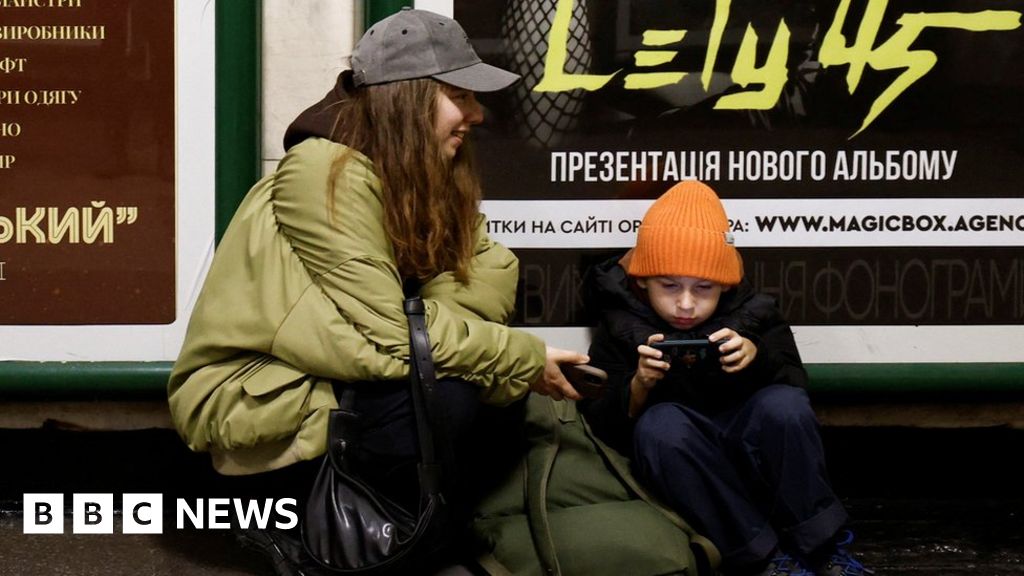Image source, Getty Images
A woman and young child sit in a metro station to shelter during an air raid in Kyiv
Ukraine’s capital Kyiv has been hit by the first Russian air attack in 52 days, according to city officials.
Writing on the Telegram messaging app, Kyiv’s mayor Vitali Klitschko said “strong explosions were heard” in the early hours of Saturday morning.
Preliminary information suggests air defence systems were able to intercept the missiles, Mr Klitschko said.
Residents have been ordered to take refuge in air raid shelters.
There have been no initial reports of casualties following the air attack, according to news agency Reuters.
Separately, in Odesa, the coastal district some 275 miles (442 km) from Kyiv, there were reports of at least two missile attacks.
According to the region’s head of administration, Oleg Kiper, three people were injured and a 96-year-old woman was hospitalised. Her condition is understood to be stable.
A 43-year-old harbour pilot died, while three Filipino crewmembers and a port worker were injured.
At a G7 meeting in Japan this week, foreign ministers from Britain, France, Germany, Italy, Japan, Canada and the US – as well as EU representatives, said they recognised that Russia is prepared for a long war in Ukraine.
They also said the Israel-Gaza war should not distract from support for Ukraine and reiterated that they would continue to support Kyiv economically and militarily.
Kyiv is increasingly concerned about “Ukraine fatigue” among Western countries eroding its ability to hold off Russian forces.
He said if Russia were allowed to win its war, “you will have a new imperial power” in Europe, that could threaten other former Soviet states like Georgia and Kazakhstan, as well as the whole continent.
“Because, definitely, it’s imperialism and colonialism that Russia is doing [in Ukraine],” he said.
However, Mr Macron did suggest there may come a time for “fair and good negotiations” with Moscow.

Emily Foster is a globe-trotting journalist based in the UK. Her articles offer readers a global perspective on international events, exploring complex geopolitical issues and providing a nuanced view of the world’s most pressing challenges.








